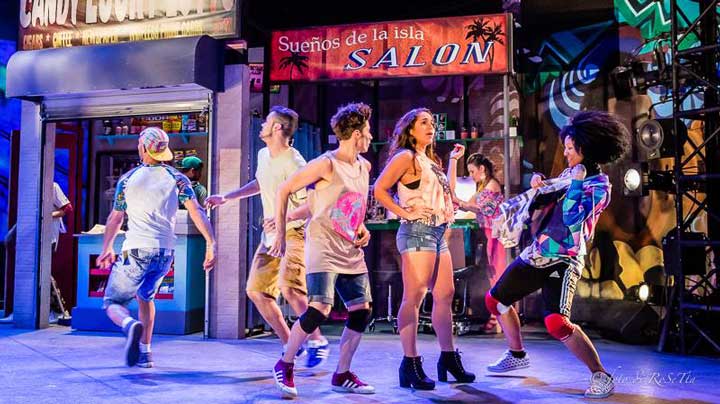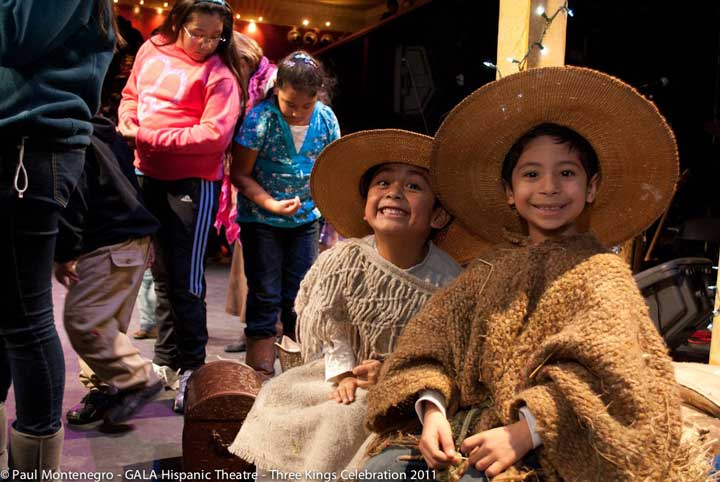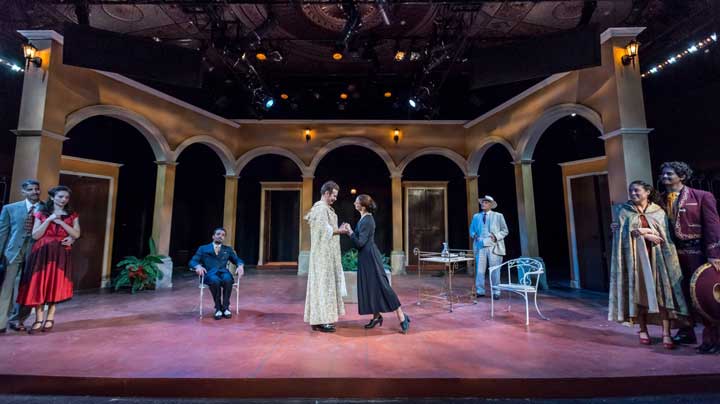
By Alexandra Fradelizio | m/Oppenheim Media Writer
When Rebecca Read Medrano co-founded the GALA Hispanic Theatre with her husband Hugo Medrano in 1976, they sought to create a safe community for those that fled repressive Latin American governments.

“We shared this vision of something that would promote and preserve Spanish and Latin American culture,” said Medrano, who also serves as the theater’s executive director.
“They needed a place and a venue in which to create and to be able to express themselves freely,”
The theater, which stands for Groupo de Artistas Latino Americanos, performs classical, contemporary, and children’s musical plays either simultaneously in English and Spanish or entirely in Spanish in its Washington DC location.
“A lot of Hispanic organizations in the United States adopt the mainstream approach and do performances in English,” explains Medrano.
“Our performances preserve the original Spanish, and we always do the work in the language in which it was written.”
The plays commissioned by the GALA Hispanic Theatre address current issues surrounding themes of family, love, and identity. In addition to adapting previously performed plays, the theater produces original scripts and music, but all plays must be written by a Latino or writer from the Hispanic community.
“Almost everything we do has a socio-political or social justice message,” said Medrano.
“There are not enough stages where those voices are being heard.”
Apart from producing plays for the general public, the GALA Hispanic Theatre offers a free after-school program for at-risk youth. Students of the program receive training in various aspects of theater production, such as writing, acting, and singing in their own plays. Many of the 100 teens involved are immigrants who support from the theater in facing a non-dominant Latino culture in America.

“They feel so safe and comfortable, especially in this anti-immigrant environment and with the current political environment,” Medrano explained.
“Many of these kids come from the dreamers who are undocumented but have been living here. They’re really afraid of what’s going to happen, and we provide a safe space where they can talk about it and make shows about it and improve their communication and life skills.”
Government grants constitute a portion of the funds received by the GALA Hispanic Theatre, but due to recent cuts that impacted the arts, the organization benefits from other independent sources of funding. The theater continues to offer low-priced tickets while also building a presence throughout the United States.
“We have to keep ticket prices lower and that means that we have to raise more money,” stated Medrano.
“We’re one of the very few Latino theaters that has even reached the $1.9 or $2 million budget and have been around this long, but somehow, we’re not on the radar of national foundations for national funding. It’s a constant challenge.”
Despite the flux in funding, the theater maintains a professional stance, especially in terms of its production. The GALA Hispanic Theatre often invites and pays artists from across the United States as well as Latin American countries to perform.

“We have always believed in paying our artists, simply because if not, you’re not a professional theater organization,” explained Medrano.
“People need to live, especially if you’re trying to encourage Spanish speaking people who are not hired by the theaters.”
Medrano, who was born in New York City but spent much of her adolescence in Spain, became immersed in the Latin American culture by studying its history, literature, and dance patterns. Together with her husband, who serves as the theater’s Producing Artistic Director, Medrano plans to commission more musicals for children and plays that are recognizable by American audiences. However, the GALA Hispanic Theatre remains intent on supporting and conserving Latin culture for generations of future audiences.
Learn more about the GALA Hispanic Theatre and Donate.
